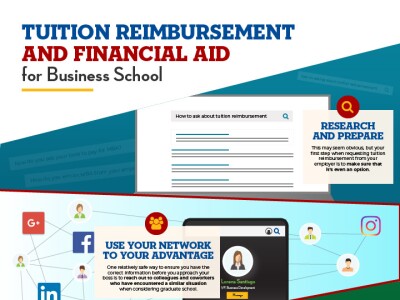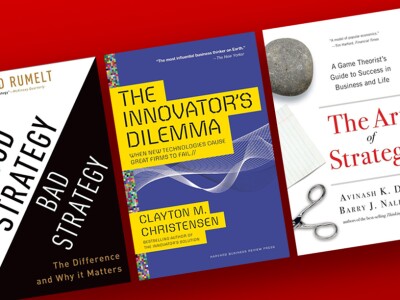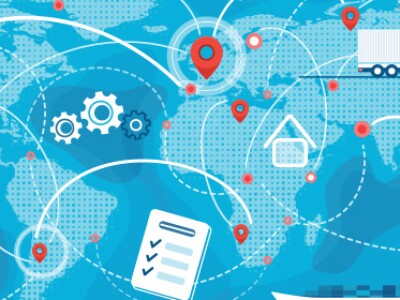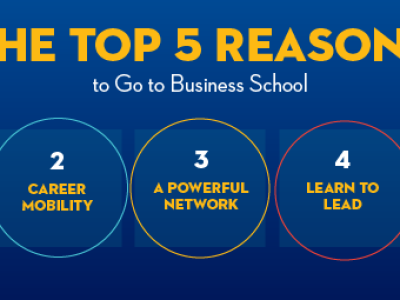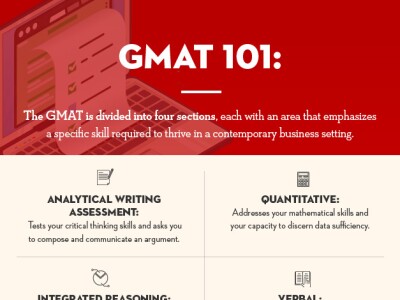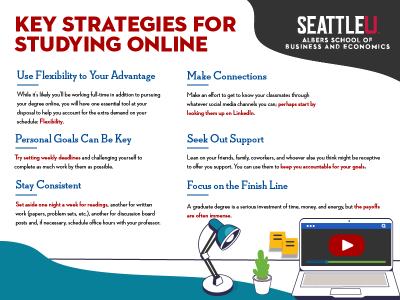Seattle University Online Business Blog
Wondering when to apply to an MBA program? Use this timeline to manage deadlines, prep smarter, and strengthen your application with ease.
Learn about MBA career paths in marketing, finance, and more. See which roles align with your goals after graduation.
Discover if an MBA without work experience is viable. Explore program options and career impacts. Make an informed decision about your educational path.
Explore the value of an online MBA in 2025. Discover the pros and cons to determine if it is the right choice for your professional growth and goals.
Looking to advance your career? Learn the key differences between an MBA and a PhD, including salary potential, time investment, and career outcomes!
Explore the fundamental differences between leadership and management. Understand how each role contributes to an organization's success.
Find out how tuition reimbursement can help you pay for graduate school. Explore eligibility requirements and how to ask your employer.
Explore the fundamental differences between leadership and management. Understand how each role contributes to an organization's success.
Learn exactly how to negotiate a job offer with these proven strategies. Get expert tips on salary discussions, benefits, and timing.
Discover seven sustainable business practices that can transform your company. Learn how to boost profits, reduce environmental impact and more.
Discover the essential requirements for an MBA program, including academic prerequisites, work experience, and application components.
Learn to build a sustainable business model that drives long-term success. Discover key strategies for balancing profit, people, and more.
Discover proven strategies and expert tips on how to get into an MBA program of your choice. Learn about GMAT prep, application essentials, and more.
Learn about sustainability in business and its importance for long-term success. See how to implement eco-friendly and socially responsible practices.
Elevate your MBA application resume with our expert guide. Learn key strategies, avoid common pitfalls, and discover how to showcase your unique strengths.
Discover the best business strategy books for MBA students. Enhance your strategic thinking, gain valuable insights, and excel in your MBA program.
Discover the best management books that will elevate your leadership skills. Learn key strategies from industry experts to propel your career.
If you want to succeed in business, we have some advice: Open a book.
Books provide easy access to the world’s experts in areas such as marketing, communications, strategy, ethics, finance, technology, or, really, any subject covered in the nation’s top MBA programs. And, the best books are also a joy to read, full of truly life-changing lessons and wisdom.
Explore how Seattle University’s comprehensive approach to leadership development plays out in one of the advanced Online MBA courses.
Explore the specialized data-focused skills and potential career outcomes of an MBA and its emphasis on well-rounded management skills.
Choosing between an MBA and a master’s can be challenging. Explore the unique aspects of each program, from curriculum and career opportunities to practical considerations to empower your decision with insights that pave the way for your professional growth.
Discover the crucial elements of SCM from suppliers to end customers. Unravel how manufacturers, distributors, and retailers interlink for efficient operations.
Not all MBA programs are created equal. Many business schools offer MBA programs for professionals at different career stages. Explore the MBA and Executive MBA differences to help you decide which degree is the best fit for your career goals.
Supply chain visibility is a game-changer for organizations aiming to stay competitive. Explore how businesses can improve customer experience, realize cost savings, and streamline operations by increasing supply chain visibility.
You’ve likely heard some of the benefits of getting an MBA before: C-suite connections, professional prestige, and other unexpected but equally important perks that last long after graduation. But with the time and money that you have to commit to the program, it’s normal to want to know exactly what you’ll get in return from this popular business degree.
A Master's in Business Administration (MBA) is one of the most sought-after degrees in the business world, promising a significant salary increase and a quick passage up the corporate ladder. So how do you know when you're ready to take this important career step?
Higher education has long been seen as a gateway to a better future—including a better paying job and more earning potential throughout your life—and the average MBA graduate salary is certainly a reason to consider attending business school.
Explore the similarities and differences of logistics and supply chain management and how the disciplines combine to support successful business operations.
In this blog, we will explore the foundations and applications of cost analysis, highlighting its significance in existing operations and new ventures.
Recent technological advancements have changed almost all aspects of our daily lives, from how we work and play to how we communicate. Explore the ethical dimensions of emerging technologies and innovation and how leaders can address them.
Investigate the key concepts and benefits of lean supply chain management, how lean compares to agile methodologies, and how lean operations can be implemented across industries.
The supply chain refers to the stages involved in getting a product from raw materials to the customer. Each step in the process is part of the supply chain, including sourcing, manufacturing, shipping, storage, distribution, and delivery.
This blog explains the essential activities that drive value and outline strategies to enhance business performance and customer satisfaction. Learn how value chain management can become a cornerstone of your business' strategic approach.
A robust risk assessment strategy can help businesses plan for unexpected events. This article covers risk assessment and management through quantitative risk analysis, including its methods and use cases.
Business analysts use quantitative and qualitative analysis and data visualization to drive informed decisions in areas including market research, financial forecasting, risk management, and operational optimization. Read more about quantitative analysis here.
Discover how you can develop essential conflict management skills and provides an overview of the factors to consider when selecting a conflict resolution training program.
Financial analytics can elevate business success by helping optimize business operations, identifying market opportunities and business risks, and improving an organization's financial and business strategy. This article will explore the benefits of analytics in finance and how you can leverage financial analytics to provide valuable strategic and operational insights to businesses.
Are you considering a career in data analysis or business analysis? Both fields are growing much faster than average, offer attractive salaries, and can be good career choices. If you’re wondering which would better fit you, this post can help answer that question.
If your organization doesn't have an educational assistance program, a well-crafted proposal might convince leadership to start one. Use the guide Seattle University’s Albers School of Business prepared to help you create a compelling case for a tuition reimbursement program.
How do you approach the job hunt if you’ve recently been laid off from the tech sector? Combining your problem-solving skills and knowledge from your tech experience with a master’s in either business administration or business analytics could be the key to a new fulfilling job and a whole dynamic career.
If you enjoy statistics, mathematics, problem-solving, and communication, becoming a business analytics professional can be a brilliant career choice. Read on for a survey of four top business analytics careers, including information on career preparation, job duties, salaries, career outlook, and job satisfaction.
In an increasingly data-driven world, more and more businesses require their employees to understand analytics. That’s especially true in tech, and it’s especially true today. Albers’ intimate MSBA program helps to sharpen students’ quantitative skills to make data-informed business decisions.
Do ethical principles and business behavior go together? Researchers studying the financial performance of companies have found a direct correlation between business ethics and bottom-line results. Read on to explore the relationship of ethics to business success and guidelines for creating an ethical work culture.
Learn how Seattle UMBA alumna Madeline Haydon has created an eco-friendly business success by leading with her values and focusing on customers.
In this article, we examine the traits that help top business leaders create the strongest teams and the greatest company success.
Discover what's in store for you as five important business trends begin making their impact on your daily life.
If you are returning to the workforce after time away to care for your family or are changing fields, discover how an MBA can help you successfully relaunch your career.
Explore concepts and industry trends for ecopreneurship with Seattle University, named a cool school for sustainable practices by Sierra Magazine.
Fabio Peña is a member of the 2023 cohort of online MBA students at Seattle University Albers School of Business and Economics. A first-generation Latinx graduate student, he is also a socially-conscious entrepreneur who blended his background as the son of migrant farm workers and his business education to support other first-gen college students. Read more about his journey and advice for first-generation students here.
There are many ways that attending an accredited MBA school can help make your business idea a successful reality. Learn what it takes to be successful and how the best schools for entrepreneurs help you develop those qualities and skills.
Over the past year, the global pandemic has left many industries in turmoil, with several sectors facing heavy disruption due to staff cuts and operational changes. While some tech companies are finding fresh opportunities for expansion amid a rapidly shifting work environment, several legacy industries are struggling to weather the storm.
Completing an MBA application can seem like a daunting task. Below, we’ve outlined some key tips to help you build the best possible MBA application by demonstrating the value that you’ll bring to the program.
A career in production management or operations management can be a highly rewarding life choice. It offers tremendous opportunities to combine a wealth of personal strengths with the leadership skill and business expertise taught in the best MBA programs—all with the goal of optimizing business output.
Read more about different types of educational assistance companies offer and the frequently attached conditions. We’ll also explore why employers provide educational assistance and share tips on finding companies that pay for MBAs and fit your career goals.
Recent data from the Bureau of Labor Statistics shows that unemployment for those with a master’s degree is 4.1%, among the lowest.1 The outlook for post-graduation employment is even better for those considering an MBA or a Master of Science in Business Analytics (MSBA).
Learn the main differences between an MBA and MSBA degree and some of the best entry-level positions you can get once you have your degree in hand.
Leaving the military and entering the civilian business world is a significant milestone. Aside from the obvious differences (a business “uniform” is less of a uniform and more a turn of phrase), you’ll find yourself having to adjust to new organizational structures, methods of communication, work hours, and more.
Seattle University Online MBA graduate Emily Panyard, didn’t just continue working while earning her master’s degree—she got promoted because of it.
Looking to land a top job in fashion management, planning, production, or manufacturing? An MBA in Operations might be the perfect fit. This degree will fully prepare you for management and consulting jobs in the fast-paced, constantly-evolving fashion industry.
Discover the differences between MSBAs to help you determine which type of program fits your wants and needs. Then, you’ll be ready to start your application and begin your graduate school journey.
With an average of 20% growth for the leading MBA schools, graduate school admissions are becoming more and more competitive. As you look to apply and start your MBA studies, there are a few things you can do to increase your chances of success.
Are you thinking about advancing your career by getting an Online Master of Science in Business Analytics (MSBA)? If so, we’ve compiled everything you need to know about an Online MSBA degree below to help you decide if it's the right choice for you.
Gian-Luca Matsuda’s online MBA experience proves that a degree from Seattle University is a valuable asset no matter where you work. Learn how he has used the resources from Seattle U to grow both personally and professionally.
As the digital world continues to expand and evolve, so do the opportunities and careers that it creates. Today, every engagement and consumer transaction carried out in cyberspace creates a data trail of potentially profitable information.
If anyone knows how to make online graduate school work for their schedule, it’s Kelsey Kaufman. After working at a digital marketing agency in Seattle for a few years, Kelsey moved to New York in 2016 to launch an influencer marketing program for makeup and skincare brand Milk Makeup.
Learn some key steps you can take to boost your chances of getting hired with an Online Master of Science in Business Administration from The Albers School of Business and Economics at Seattle University.
If you’re thinking of pursuing a degree in data science, you’ve made a wise decision. According to the U.S. Bureau of Labor Statistics, data science is one of the top 20 fastest-growing occupations, with a projected growth rate of 31% between 2019-29.
The first thing that might come to mind when considering an MBA program is whether the school offers the right program for you. Explore what to look for in a Seattle MBA program.
Online learning has expanded dramatically over the last two decades. What used to be a niche higher education opportunity offered by only a handful of schools has become incredibly popular. Even before recent events with COVID-19 forced many into online learning, tens of thousands of students were choosing to enroll in an MBA or MSBA program online.
Keep reading to learn about the best online MBA in Washington state and how it will help equip you to achieve successes that serve the greater community and help build a better society.
FinTech is not just a fancy new buzzword that bankers use—this burgeoning industry is exploding with innovative ideas, groundbreaking technology, and a hugely promising future. Since the 2008 financial crash that saw millions of citizens arou...
When Schyuler Lujan looked at the job postings that interested her, they all seemed to require programming skills. So, as she researched graduate programs, she knew she needed one with a thoughtful mission, a strong sense of community—and offered coding 101.
For Jamian Griggs, the residency retreat was a surprise: Not a surprise that as an Online MBA student, he would need to attend—but rather a surprise that he would get so much out of it.
The MBA Oath has been taken by more than 10,000 students around the globe. Discover more about the MBA Oath itself and its relationship with ethical business practices and business schools around the globe.
Businesses today create and store a lot of data. Seagate estimates by 2025 we will have produced about 175 zetabytes1 of data, and with an MSBA degree, you could help businesses effectively analyze data to make strategic decisions about the future.
At Seattle University, a personal statement is not required to apply for our Online MBA. However, it can be a powerful tool in making your case to be admitted.
Python might sound as frightening as its namesake, but don’t worry. It can actually be the tool that sets you on a new career path. With more data available than ever before, there’s a real need for professionals who understand how to use today’s technology.
Exploring MBA Career Paths: A Timeline

While no two MBA career paths may be exactly the same, it can still be productive to consider some general advice for maintaining a healthy upward trajectory. It’s likely that if you are considering an MBA, you already have some idea of how you would like the degree to impact your career, whether that be in terms of a more advanced title, a pivot into a different in industry, new skills and relevant knowledge, or all of the above.
Asking for Tuition Reimbursement

Each person contemplating putting forth the time and effort to earn an MBA or Master of Science in Business Analytics (MSBA) has their own motives: promotions, increasing their salary, expanding their business acumen, earning respect and enhancing their credibility in the office. Even if their reasons for pursuing an MBA or MSBA differ, each prospective candidate likely shares the same concern: How will I pay for this program?
“Business acumen”: It’s a term that every professional knows and likely even uses from time to time, but one that has a tendency to get thrown around rather loosely, without a precisely articulated definition. Business schools may promise to develop business acumen and hiring managers may list it as a required or desired skill in job postings, but what are they really offering or asking for?
Read about five key benefits of time management in the workplace and explore some time management strategies that can help make them a reality for you and your organization.
If you’re wondering, “Should I go to business school?” let Seattle University help you out. Learn the top 5 reasons to go to business school and see where an advanced business degree can take you.
A complete business education does not just occur inside a business school classroom. The most motivated professionals are committed to constantly learning and growing on their own, seeking out whatever new information and perspectives they can on everything from broad trends in the global economy to trending topics in business and management strategy and productive everyday behaviors.
How the Online Learning Experience Can Elevate Your Education
As higher education has become an increasingly common requirement for professional advancement, online learning has seen its profile rise as an attractive option for working professionals. In fact, even as overall enrollments in higher education have declined in recent years, online enrollments have grown every year since 2002.
Graduate school is a significant investment. If you’re a working professional considering returning to school for an advanced degree, chances are you are going to want to see evidence of a desirable ROI before taking the plunge and writing that first tuition check.
If you are currently engaged in the GMAT preparation process and searching for answers to questions like “How much does the GMAT cost?”, read on to learn everything you need to know to position yourself for success on the exam.
So you’ve chosen to pursue your graduate degree online. Perhaps studying online will allow you to take classes at an institution outside of your local geographic area, or possibly the freedom to complete coursework on your own schedule is the major factor driving you to seek your degree online. Whatever your reason, one thing is clear: Studying online effectively requires a specific set of skills that are not quite the same as those needed to succeed in a conventional classroom.







